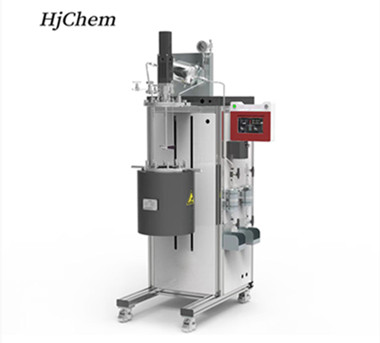Home > News > Nanjing Hjchem Benchtop High-Pressure Autoclave Reactor: A New Era in Laboratory Hydrogenation Research
Nanjing Hjchem Benchtop High-Pressure Autoclave Reactor: A New Era in Laboratory Hydrogenation Research
- Introducing the Benchtop High-Pressure Autoclave Reactor: A New Era in Laboratory Hydrogenation Research

In modern scientific research, laboratories face increasing demands for precision, safety, and efficiency. Traditional reactors often struggle under extreme conditions such as high temperature, high pressure, or corrosive environments. To address these challenges, the high-pressure magnetic reactor has emerged as a groundbreaking innovation. This advanced equipment is now available as part of our product portfolio, designed to support cutting-edge research in chemistry, pharmaceuticals, materials science, and environmental studies.
Click here to learn more about our full range of systems.
The small pressure reactor integrates several advanced technologies to create a compact yet highly effective research tool. Its design is optimized for small-volume reactions, making it ideal for catalyst screening, process optimization, and experiments involving expensive or rare materials.
1. Reactor Vessel and Sealing System: Constructed from stainless steel 316L, Hastelloy, or titanium alloys, the vessel is polished for corrosion resistance and reduced adhesion. The sealing system combines precision-threaded closures with gaskets, such as copper, aluminum, or corrosion-resistant elastomers. Magnetic sealing eliminates dynamic seal leakage, ensuring zero-emission operation even under high pressures (10–30 MPa).
2. Magnetic Stirring Mechanism: A unique feature of this reactor is the magnetic coupling between external and internal rotors. The external rotor, powered by an electric motor, induces a magnetic field that drives the internal rotor and stirrer blade without direct mechanical contact. This prevents seal wear and leakage while maintaining stable mixing across a wide range of viscosities.
3. Heating and Temperature Control: Heating is provided by electric resistance jackets or circulating oil/water baths. Temperature control is precise, with PID logic and thermocouples ensuring deviations within ±0.5°C. This stability enables highly reproducible experiments. Cooling options are also available for low-temperature or rapid cooling requirements.
4. Pressure Monitoring and Safety: Advanced pressure sensors monitor conditions in real time, while rupture discs and safety valves provide overpressure protection. This combination guarantees safe operation under demanding laboratory conditions.
The pressure vessel operates on the principle of magnetic coupling, where torque is transmitted without physical connection between the motor and the stirrer inside the vessel. This design ensures leak-free operation, a crucial advantage when working with toxic, volatile, or flammable substances. Pressure can be established internally via gas-producing reactions or externally by charging gases such as hydrogen or nitrogen from cylinders. Temperature is controlled dynamically using advanced PID logic.
The small high-pressure autoclave reactor represents a significant step forward in laboratory technology. By offering leak-free operation, precise control, and adaptability, it empowers researchers to explore new frontiers in chemistry and beyond. For laboratories seeking safe, efficient, and reliable high-pressure solutions, this reactor is the ideal choice.
Contact us
Nanjing Hjchem Equipment Co., Ltd.
Address: Room 7002-6, No.7 Building, Yingcui Road, Nanjing China
Website: https://www.njhjchem.com
Email: stella@njhjchem.com
Related News
- High Speed Framing Cameras for Fusion Research 1/21/2026
- Tri-coded Storage Tube Optimized for Maximum Sample Recovery 1/16/2026
- Optimised UV Lenses for Forensic Investigation 1/16/2026
- Large Format Aerial Surveillance Lens 1/7/2026
- Breathing New Life into Older High-speed Cameras 1/7/2026
- New Handheld Decapper Boosts Speed and Consistency of 48-Format Tube Handling 1/6/2026
- Celleo Biotech Uses INTEGRA's PIPETBOY GENIUS to Improve Reproducibility and Eff 1/5/2026
- Biotium Launches GlycoLiner™ Cell Surface Glycoprotein Labeling Kits for R 1/4/2026
- High Specification Optical Flats for Custom Fizeau Interferometer 12/18/2025
- Merck Launches ChemiSphere® App to Simplify Digital Data Access and Boost L 12/17/2025


